#WhiteHouse
Gas War: California Sues Over State-based Emission Standards
On Friday, California and 23 other states filed a lawsuit against the Trump Administration over efforts to reverse state-driven emissions standards. Earlier this week, the president confirmed speculation that the federal government would be taking steps to revoke California’s fuel waiver — making the suit about as predictable as the setting sun.
We’ve told the story countless times. The Golden State wants to maintain stringent emission laws for automobiles, the Trump administration wants a fuel rollback, and automakers want a universal national standard. After months of nonproductive talks and all sides attempting to make their case to the public, it looks at though the Supreme Court will have the final say.
Gas War: White House Preparing to Strip California of Regulatory Privileges, Report Claims
It’s not as if we anticipated any other outcome, but the White House is moving forward with a plan to revoke California’s authority to set its own vehicle emission standards. According to Reuters, President Donald Trump met with senior officials in Washington on Thursday to discuss the administration’s proposal to roll back Obama-era standards through 2025 and potentially revoke California’s waiver under the Clean Air Act to set state requirements for vehicles.
Anonymous sources claimed Environmental Protection Agency Administrator Andrew Wheeler, Transportation Secretary Elaine Chao, National Economic Council director Larry Kudlow, Deputy Attorney General Jeffrey Rosen and acting Office and Management and Budget director Russell Vought were in attendance.
Car Talk: GM's Barra to Sit Down With Trump Thursday
General Motors CEO will meet with U.S. President Donald Trump and White House officials on Thursday to discuss the state of the automotive industry, trade issues, and the fuel economy rollback. We imagine it’ll go much differently than their first meeting in Washington.
Perpetually concerned with economic threats arising from China, Trump has come down hard on automakers in the past. These days, his favorite punching bag happens to be GM. The automaker’s strong presence in China has forced it to make commitments there. On this side of the Pacific, the automaker has shuttered production facilities in Michigan, Ohio, and Maryland while continuing to manufacture vehicles in Mexico — something the UAW has been exceptionally critical of going into contract negotiations.
Gas War Update, Choose a Side Edition
According to recent reports, there’s trouble with the White House’s fuel economy rollback. The Trump administration is said to have been meeting with automakers, asking them to stand behind its proposal to freeze economy standards at about 37 mpg until 2026. The New York Times indicates it was an act of desperation, spurred by claims that Mercedes-Benz was on the cusp of supporting the California compromise. Based on existing standards, which would raise the average fuel economy of new cars and trucks to 54.5 miles per gallon by 2025, the deal would delay its targets by one year.
Honda, Ford, Volkswagen, and BMW previously agreed to support California’s proposal in July. However, the deal is non-binding if the White House decides to push through a rollback, and most of the rhetoric being used by the industry seems more focused on a joint standard.
“A 50-state solution has always been our preferred path forward and we understand that any deal involves compromise,” read the automakers’ joint statement.”These terms will provide our companies much-needed regulatory certainty by allowing us to meet both federal and state requirements with a single national fleet, avoiding a patchwork of regulations while continuing to ensure meaningful greenhouse gas emissions reductions.”
Gas War Watch: EPA and CARB Leadership Won't Even Share the Same Table
Capitol Hill was the scene of some high-school drama this week after representatives from the Environmental Protection Agency (EPA) and the California Air Resources Board (CARB) reportedly refused to sit at the same table while discussing fueling regulations with the U.S. House Energy and Commerce Committee.
As petty as this seems, it illustrates the overall situation rather well. White House officials terminated talks with California in February, citing an inability to progress the debate. Meanwhile, CARB has been claiming the Trump administration doesn’t want to hear its case and has instead sought to strip the state of its ability to self regulate in order to pass reforms that would freeze national emissions standards at 2020 levels though 2026.
Thursday’s congressional bickering helped paint a clearer picture of what the communications breakdown looked like.
Gas War Watch: UAW Goes to Congress, Sides With Automakers on Fuel Economy Rollback
The United Auto Workers is spending Thursday telling Congress that the union opposes the Trump administration’s proposal to freeze fuel efficiency requirements at 2020 levels through 2026… sort of. While the UAW expressed moderate environmental concerns in the past, most of its opposition to the rollback has revolved around corporate investments into the industry. In fact, the union’s research arm called fuel economy the auto industry’s “future” in 2018.
This time around, the UAW seems to be singularly focused on business aspects. According to a prewritten testimony, UAW Legislative Director Josh Nassar intends to tell two subcommittees of the U.S. House Energy and Commerce Committee that the union is in line with automakers’ concerns about the proposal leading to “protracted litigation and uncertainty in the industry that will limit growth.”
The Great Gas War: House Committee Plans Hearing On Fuel Efficiency Rollback
On Tuesday, the House of Representatives Energy and Commerce Committee said it will schedule a hearing on June 20th regarding the Trump administration’s proposal to roll back automotive efficiency standards. The decision comes from Committee Chairman Frank Pallone, Jr. (D-NJ), Consumer Protection and Commerce Subcommittee Chair Jan Schakowsky (D-IL) and Environment and Climate Change Chairman Paul Tonko (D-NY) — all of whom are in clear opposition to the suggested plan.
The groups will hold a joint hearing to discuss Corporate Average Fuel Economy (CAFE) standards and carbon pollution regulations affecting light duty vehicles as they relate to the current administration’s plan to effectively freeze efficiency targets between 2020 to 2026.
Meet Us in the Middle: Automakers Plead for Peace, Compromise Between White House and California
The automotive industry is in turmoil. There’s an industrywide push toward electrification that has yet to prove itself as truly profitable, volume seems to be tapering off in the developed world, and emissions regulations aimed at improving air quality are operating counter to existing consumer tastes. As a result, automakers are scrambling to find the best path forward.
In 2017, that path involved encouraging the new U.S. president to roll back Obama-era fuel economy mandates, thus providing some breathing room and staving off fines as automakers began to realize they wouldn’t be able to meet tightening targets. The administration listened, leading to a proposal that would effectively freeze mileage standards at about 37 miles per gallon — rather than the previously decided 54.5 mpg — by 2025.
However, California and a coalition of supportive states claim they won’t be going along for the ride. This group says it will maintain the old standards, regardless of what the White House says. The staredown has automakers worried; they’ve now banded together to issue a letter asking both sides to calm down and keep talking.
White House to Automakers: Choose a Side in the Great Gas War
The Trump administration has long been at odds with California and a coalition of supportive states that hope to block the rollback of Obama-era fueling regulations the current Environmental Protection Agency deems “unsustainable.” The EPA also says it’s inconsistent with consumer behavior. But automakers have behaved somewhat erratically on the matter, forcing the president to request (by proxy) that they make up their minds and pick a side before a final decision is made.
While industry leaders previously backed the more stringent regulatory framework set in place by the former president, they quickly converged on Washington after Trump assumed office in 2017, requesting a softening of Corporate Average Fuel Economy standards. After blowback from California and environmental activists, automakers took a more measured approach, publicly stating that they support green initiatives and reducing their own carbon footprint — and suggesting that a national deal be reached that pleases all parties.
Fence-sitting time might be over.
Trade War Watch: Trump Reportedly Delaying Auto Tariffs, Clock Still Ticking
The Trump administration was supposed to make an announcement Tuesday as to whether or not imported automobiles pose a national security risk, following discussions with trade representatives. While it wasn’t presumed that the White House would say anything truly definitive or hold a formal press conference on the issue, it was assumed that the president would take a stronger public stance either for or against an earlier proposal to raise foreign auto import tariffs to 25 percent. And it has, in a way.
According to those familiar with the matter, the White House decided to postpone any major decisions after discussing a draft Commerce Department report on the impact of auto imports with trade reps. However, the administration doesn’t have forever to make up its mind. Nor does its trading partners, which could be the point.
Japanese Automakers: Trump's Steel Tariff Will Cost You More at the Dealership
Earlier this month, President Trump signed an executive order imposing a 25 percent tariff on foreign steel and a 10 percent tariff on foreign aluminum. Hoping to receive an exception, the Japanese auto lobby warned that the U.S. import tax would definitely inflate the price of models built by the companies it represents. That’s bad news.
However, the White House has already omitted its NAFTA partners from the tariffs, adding that it would consider further exceptions based on countries’ contributions to U.S. national security, military alliances, trading history, and how much they pay into strategic alliances like NATO.
While Japan is a longtime trading partner with the U.S., there currently exists a $69 billion deficit between the two countries. Trump also bemoaned Japan’s unwillingness to accept American imports. Still, the two have shared military alliances throughout the 20th century, with one ugly exception during World War II. They currently operate under the Treaty of Mutual Cooperation and Security and the U.S. currently considers the Japan one of its closest allies, despite it not being a NATO member — placing it in reasonably positive standing for tariff exceptions.
Pence Meets With Automakers Annoyed by NAFTA Changes
The automotive industry is wary of any changes that might be made in regard to the North American Free Trade Agreement. Fortunately for them, little progress has been made during the last few months of negotiations. But that doesn’t create an assurance that changes aren’t still en route. So, manufacturers and suppliers have banded together via various trade groups to voice their opinion on how to best handle NAFTA.
Meanwhile, the Trump administration has attempted to make itself appear friendly to the automotive business. Continuing these efforts, Vice President Mike Pence has met with General Motors CEO Mary Barra, Fiat Chrysler’s Sergio Marchionne, Ford North America President Joe Hinrichs, and a handful of other top-tier auto executives.
House Members Aren't Digging Trump Administration's Auto Trade Proposals
A bipartisan group of over 70 members of the U.S. House of Representatives has asked the Trump administration to reconsider its North American Free Trade Agreement proposal on auto parts rules of origin. Seen as a sunset clause by Canada and Mexico that tweaks international agreements to lower the United States’ trade deficit, the rule has also received some serious blowback from domestic automakers. They’ve even used trade groups to craft awareness campaigns and reach out to congress, a decision that appears to be working.
Currently, NAFTA mandates at least 62.5 percent of the materials used in a car or light truck be sourced from North America in order to avoid tariffs. The Trump administration’s proposal would up that requirement to 85 percent, with 50 percent of the total being from the United States.
The NHTSA: Broken Down, Short on Staff, Slow on Change
The United States is still waiting on a glut of senior appointments within agencies that affect the automotive industry. While the Environmental Protection Agency eventually got Scott Pruitt, many high-ranking positions remain vacant at the EPA and other U.S. regulatory groups. The National Highway Traffic Safety Administration is still missing an administrator, chief counselor, director for government affairs, chief financial officer, and one enforcement chief.
With so many holes in its staff, former NHTSA officials and consumer advocacy groups are worried the agency has been rendered ineffective — essentially stalled on important decisions and issues that need the right kind of signature. Eight months is a long time to wait for an appointment and the NHTSA was only just given a deputy administrator, after former executive director Jack Danielson’s promotion.
Even Automakers Disagree With Trump's Choice to Abandon the Paris Accord
On Thursday, President Trump made the decision to ditch the Paris climate accord and the entire internet seemingly spent the next twelve hours calling it a misstep. Either the president possesses a hidden wisdom on the subject that nobody else can seem to fathom, or he has severely misjudged the public’s position on environmental issues. Calling the accord “unfair at the highest level to the United States,” Trump suggested the deal was detrimental to the country’s manufacturing efforts and gave other nations a financial advantage.
However, the instant feedback from the automotive industry did not appear to share his viewpoint. With nearly 200 other countries still adhering to the nonbinding Paris agreement, it’s almost as if Trump had forgotten car companies operate on a global stage. Both General Motors and Ford Motor Company issued statements in opposition to Trump’s decision.
“We believe climate change is real, and remain deeply committed to reducing greenhouse gas emissions in our vehicles and our facilities,” announced Ford. “Our commitment to sustainability is why we’re investing so heavily in electrification and adding 13 new electrified vehicles to our lineup.”




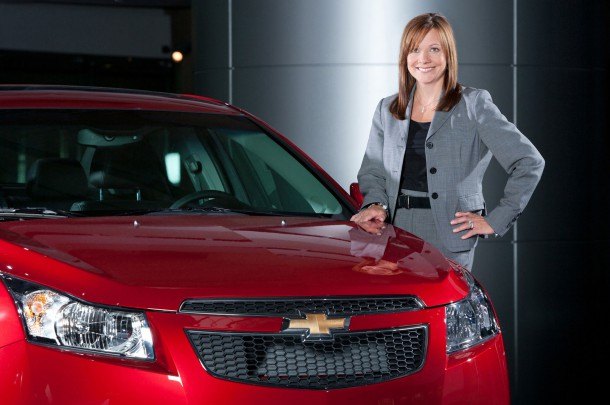

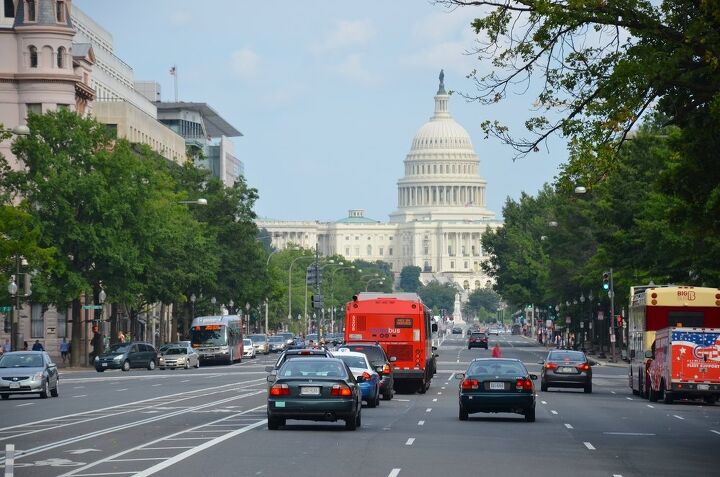


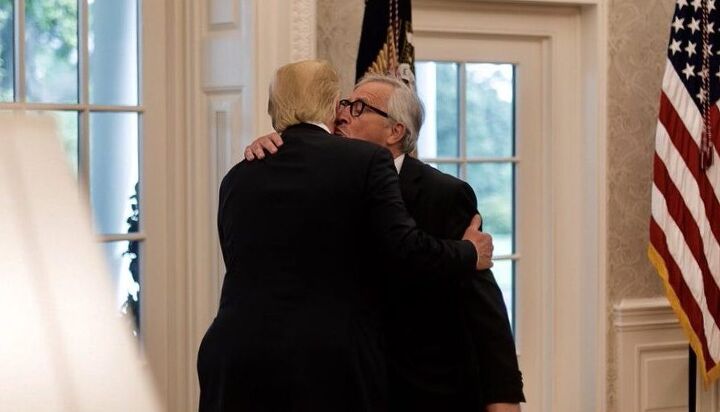
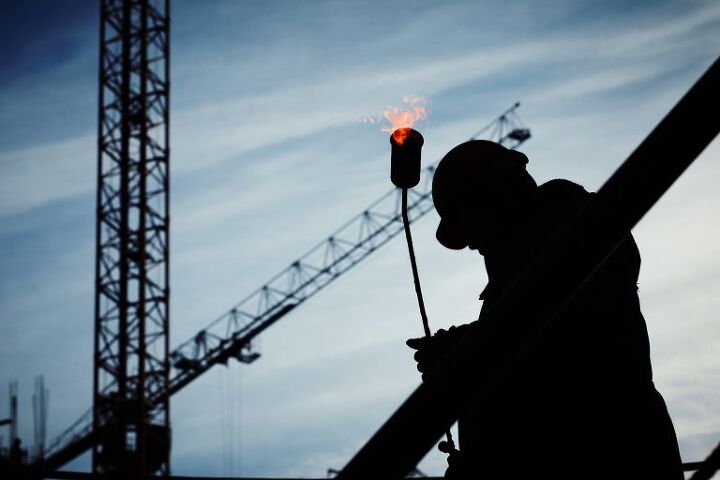


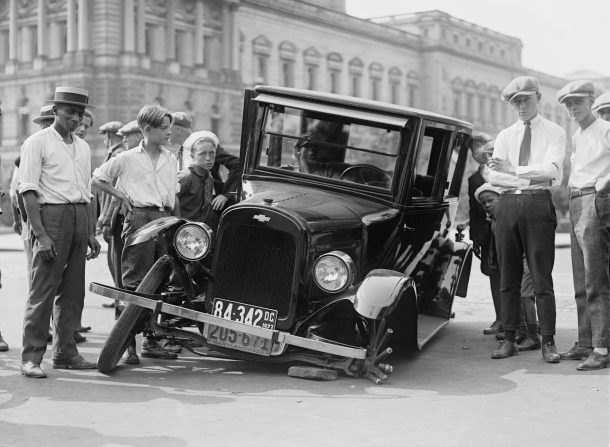













Recent Comments